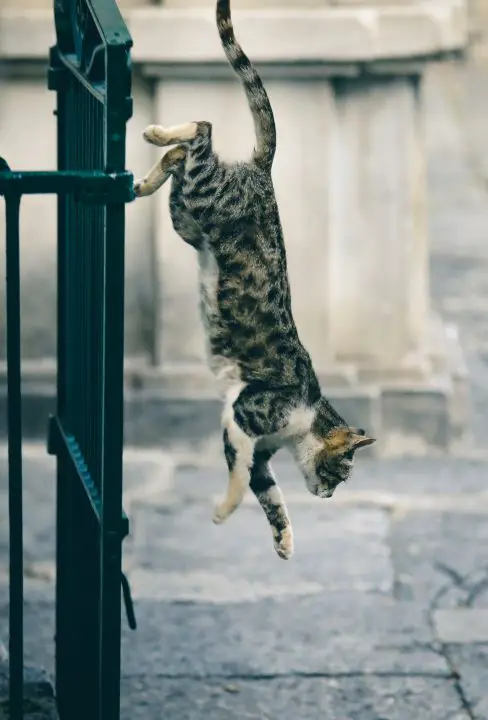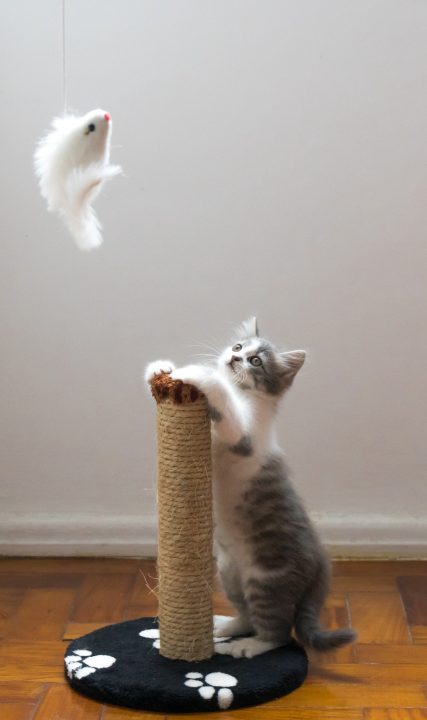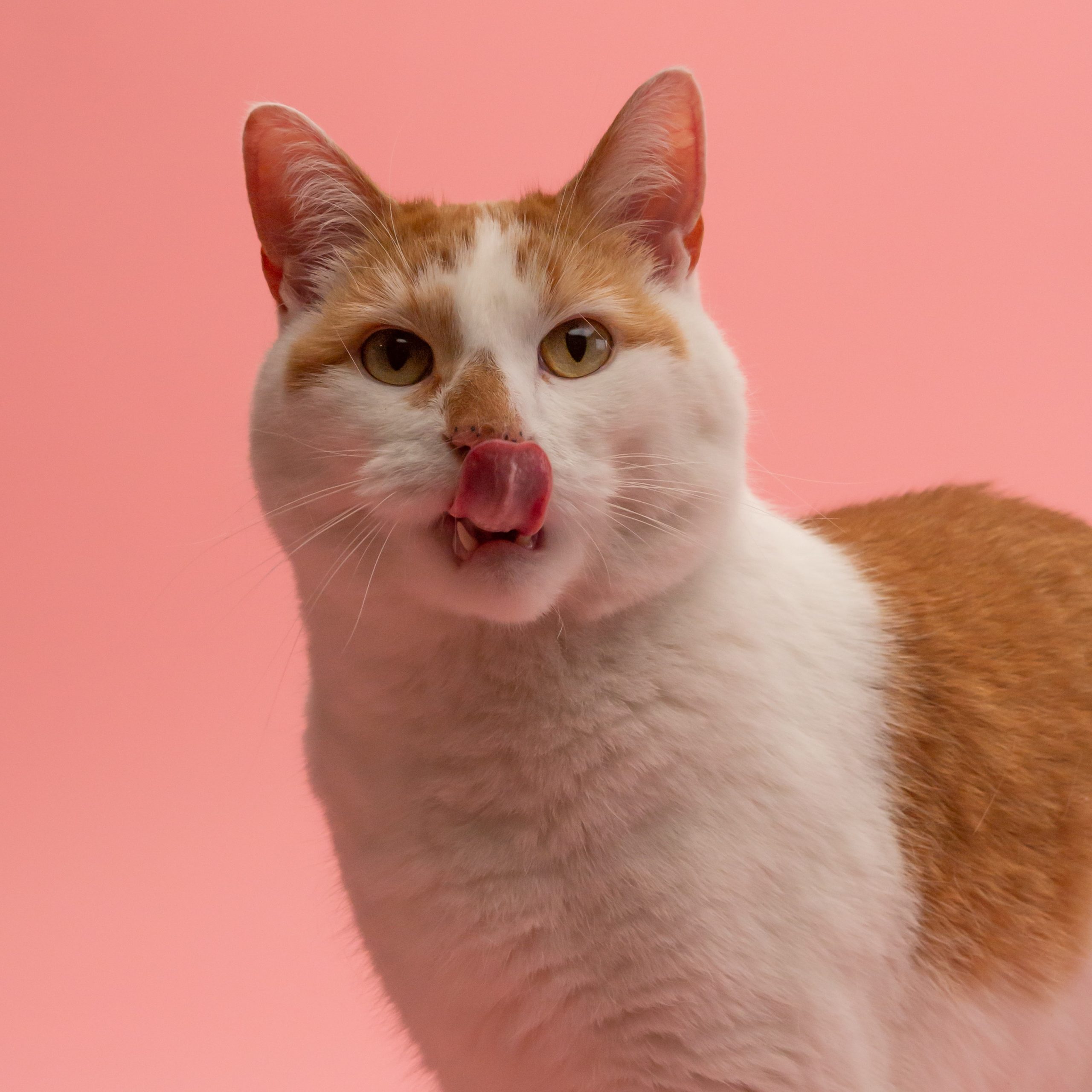Have you noticed your cat panting after playing with the laser pointer or going outside? To new cat owners, this dog-like panting can be upsetting. More experienced cat lovers, though, know that cats pant like dogs after vigorous exercise. If you notice your cat panting after playing, keep observing. Their breathing should go back to normal.
Still, it’s worth noting that labored breathing and panting can be a sign of more serious illnesses. If you spot other symptoms, it could mean your furry companion is in trouble. That’s why we’re going to talk about why your cat is panting after playing and the causes of more prolonged panting, so you know the right way to approach it.

Table of Contents
- Why Do Cats Pant?
- What is The Normal Respiration Rate For a Cat?
- Cat Panting After Playing—Abnormal Causes
- What Should I Do If My Cat is Panting?
- Panting is Rarely Problematic
- FAQs
Why Do Cats Pant?
It’s absolutely normal for cats to pant. Unlike humans, cats don’t sweat—except for around their feet. They are like our other favored four-legged companions, dogs, in that respect.
In fact, panting is an expected response in three situations:
- Anxiety or Stress: Cats are suspicious creatures. Unless they are completely familiar with a place, they will be frightened by anything that moves, including strangers in the house and new sounds. Some cats become so anxious that they will pant until they calm down.
- Excitement: Energetic kittens sometimes pant like puppies during playtime, because they are so excited by what is happening. Older cats are less known for excited panting.
- Overheated or Overexertion: Cats don’t love the heat. They can only perspire from the foot pads, and even that isn’t enough to keep them cool. In high temperatures, cats will begin to pant as a way to expel excess heat from their bodies.
Here is an example of a cat panting during a ride in the car:
He’s clearly not amused!
Is It OK For My Cat to Pant After Playing?
Long periods of play that have you cat racing around the house and doing all kinds of acrobatics is tiring. This is especially true when the weather is warm. It’s normal to see your cat flop down onto the floor, breathing heavily or even panting.
As long as you know that the panting is caused by playtime and not anything serious, you have nothing to worry about. Any time a cat pants after playing, their breathing should even out in a few minutes.
What is The Normal Respiration Rate For a Cat?
Let’s say that you just finished playing with your cat and they are rapidly breathing. Maybe your cat is even struggling to get comfortable. In this case, you should count their respiration rate to ensure they’re breathing normally.
Cats breathe faster than humans. An adult human may take 12-16 breaths in 60 seconds, but a cat takes 20-30 breaths during that time. To calculate how fast they are breathing, count the number of breaths your cat takes for 30 seconds. Multiply that number by two to see how many breaths they would take in 60 seconds.
This video explains the process and even gives some examples for calculating your cat’s respiration rate:
Keep in mind that some healthy cats breathe a little slower than others. But if your cat has more than 30 breaths per minute, there could be an issue. Also, keep in mind that heavy, labored breathing doesn’t always manifest as rapid breathing or panting.
Cat Panting After Playing—Abnormal Causes
When should panting be a cause for concern? When it’s partnered with other symptoms and happens frequently. Cats have unique personalities and constitutions, just like people, so while panting is normal in most cases, you should also keep the following abnormal causes for a cat panting after playing in the back of your mind:
Asthma
Did you know that cats can get asthma like people? Now you do! Feline asthma is related to allergens in the air that could cause restrictions in the airway. When an asthmatic cat plays for too long, they may resort to open-mouthed breathing, coughing, wheezing, and panting.
Hypertrophic Cardiomyopathy
Another cause for a cat panting after playing is hypertrophic cardiomyopathy, or an enlarged heart. This means that, because the heart is pumping more blood, fluid accumulates in the lungs and chest. Cats suffering from hypertrophic cardiomyopathy may show signs of lethargy, aside from panting or shallow breathing.
Since an enlarged heart can lead to congestive heart failure, it is important that you work together with your vet to get the disease under control.
Respiratory Infection
Now and again, a cat may contract a respiratory infection. When this happens, the airways become filled with mucus, putting a strain on your cat. They may resort to panting to draw in more air. The good news is that respiratory infections are highly treatable with antibiotics. Most cats recover from these infections with perfect health. During your cat’s convalescence, you can use a humidifier to facilitate nasal breathing and break up the mucus in their lungs.
Feline Infectious Peritonitis
Also known as FIP, this viral disease is caused by a feline form of the coronavirus. Feline infectious peritonitis develops fast. Fever, depression, loss of appetite, and weight loss are common symptoms. Because the disease happens so quickly, fluid may also develop in the chest and abdomen, pressing on the lungs and making it hard to breathe.
Heartworm Associated Respiratory Disease (HARD)
Cats might not get heartworms as often as dogs, but they can get heartworms nonetheless. While many heartworms don’t mature in cats, the smaller worms can still cause respiratory distress. Cats that develop HARD will have a lack of appetite, lose weight, and show asthma-like symptoms. While there is no approved medication for heartworms in cats, your veterinarian will focus on treating the symptoms and reducing inflammation.
Dehydration
Has your cat been drinking plenty of water? Dehydration in cats can cause panting, as well as sunken eyes, pale gums, and lethargy. There are many reasons dehydration can occur, especially in cats with hyperthyroidism, cancer, diabetes, or kidney disorders. But they may just have forgotten to drink during playtime or spent too long outside in the heat.
Other Causes of Panting
There are many reasons a cat is panting excessively. Referred to as dyspnea (heavy breathing) or tachypnea (rapid breathing), these kinds of labored breathing can also point to issues like:
- Side effects of medication
- Anxiety
- Pain
- Abdominal distension from obesity, enlarged organs, and pregnancy
- Lung diseases (pneumonia)
- Cancer
- Diseases of the airway
- Heart disease
- Brachycephalic airway syndrome (common in Himalayan, Burmese, and Persian cat breeds)
- Overweight or obesity

What Should I Do If My Cat is Panting?
Your cat panting after playing or after a walk or during a trip to the vet? Don’t worry. These generally are symptoms of something more severe. Cats pant for normal temperature regulation or when they are excited. Seldom is panting alone a medical emergency.
The best way to help your cat when they are panting is to keep them cool. If you and your cat were outside in the heat, be sure to bring them some cool water and turn on the air conditioner. Usually, these two things are the only remedies a cat will need to stop breathing heavily.
If your cat is still struggling after rest or for a few days, you should schedule a visit with your veterinarian.
Panting is Rarely Problematic
If you were worried that your cat panting after playing meant something horrible, you are hopefully more at ease. Panting is a normal reaction to heat, excitement, or stress. Cats and dogs both pant when their emotions are high. As long as you know why your cat is panting, you can rest easy. It’s when panting is paired with other symptoms that it could be a potential medical emergency. In that case, don’t wait to bring your furry friend to the vet!
Has your cat been licking his or her lips? Read more on our blog to find out what to do.
FAQs
As long as you know that the panting is caused by playtime and not anything serious, you have nothing to worry about. Any time a cat pants after playing, their breathing should even out in a few minutes.
If you notice your cat panting, it’s important to closely monitor its behavior and overall condition. If the panting is persistent, severe, or accompanied by other concerning symptoms, it’s recommended to contact your veterinarian for a proper evaluation.





